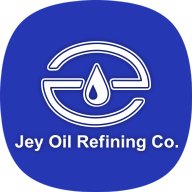Bitumen refinery processes
In an oil refinery, processed crude oil is divided into different cuts based on their boiling range. In atmospheric distillation, which is the first stage of this continuous process, crude oil is heated to 300 to 350 degrees Celsius and the more volatile components are heated. Gasoline and kerosene are distilled. This material leaves a residue called the atmospheric residue, which is mostly discharged under a vacuum.
The actual residual processing temperature is 350 to 390 ° C, but due to the vacuum applied, the most effective distillation cut-off point is 500 to 560 ° C. This vacuum distillation process produces more volatiles known as vacuum distillates, leaving a very non-greasy residue of high viscosity called a vacuum residue.
Depending on the origin of the crude oil, vacuum residues are used directly as bitumen without further processing. However, for some crude oils or to create special specifications, additional processing may be required, such as blowing gentle air from the residue. The air blowing process requires careful selection and control of process temperature, air velocity and residence time to ensure a stable product. Bitumens are sometimes produced by mixing vacuum residues with asphaltene from lubricating oils. For example, when producing lubricating oils in the same refinery, propane (PPA) sedimentary asphalt is commonly used in the manufacture of bitumen.
The choice of crude oil is an important aspect of bitumen production that requires expertise and experience to obtain a satisfactory product - it can not be used to produce all crude oil.
Bitumen A small number of approximately 1,500 crude oils available are suitable for the production of quality bitumen. In Australia, very few crude oils are able to produce bitumen by current Australian standards.
Cut bitumens are produced by diluting the paving grade bitumen with cutting or flux. Bitumen emulsions are made by dispersing asphalt grade bitumen in water with the help of emulsifier in a colloidal mill.
For industrial bitumen, it is necessary to blow hard air to produce a material that softens at temperatures above the level of the asphalt level with equivalent penetration. Therefore, this product is known as "air bitumen" or "oxidized". Typically, blower gas raw materials have a lower initial boiling point than paved surface asphalts. This process, along with intense blowing, imparts certain physical properties to industrial bitumen.
The production of high quality bitumen relies on a combination of modern refinery skills, experience and technology. These items are widely used to ensure the adequacy of feed sources and to monitor and control all stages of the process.
http://www.jeyoil.com/en/page/bitumen-refinery
➡️➡️ http://jeyoil.com/en/homehttp://Jeyoil.com/en/home
#Iran_high_quality_bitumen
#Iran_bitumen
#Iran_bitumen_drum
#Iran_bitumen_bag
#Bitumen_refinery
#Main_bitumen_producer_in_iran
#Bitumen_product_in_iran
#Bitumen_price_in_iran
#Iran_Bitumen
#Drum
#JeyOil
#Jey_Oil
#Jey_Oil_Refining_CO
#w_jeyoil_ads
#شرکت_پالایش_نفت_جی
#بزرگترین_واحد_تولید_کننده_قیر_در_خاورمیانه
➡️➡️ http://jeyoil.com/en/home
